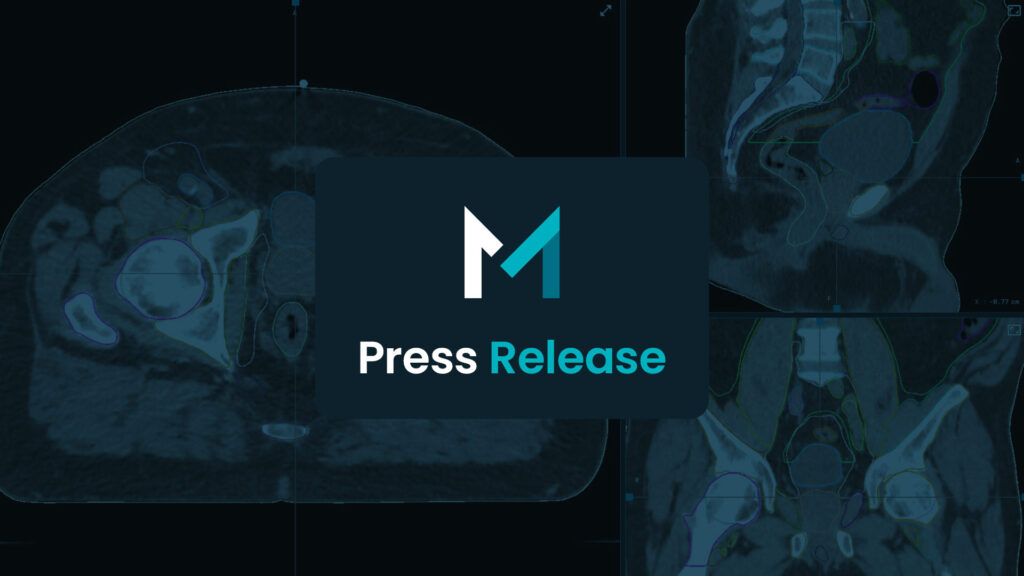Helsinki, June 2025 – MVision AI has named Gregory Bolard as its new Chief Scientific Officer, marking a key step in the company’s ongoing development of clinically driven AI solutions in radiotherapy. With a background in engineering and medical physics, and over 15 years of clinical leadership experience across Europe, Gregory brings deep insight into the practical needs of oncology teams. We sat down with Gregory to discuss his path to MVision AI, his vision for the future of cancer care, and how AI can best support clinical decision-making.
Question 1:
Can you walk us through your path to becoming CSO at MVision AI?
My path to MVision AI began with an engineering background and specialization in medical physics, which gave me a solid foundation in both the technical and clinical aspects of radiation therapy. I spent 15 years in clinical practice across France and Switzerland, not only working with medical teams but also leading them and experiencing firsthand the daily challenges they face in delivering optimal cancer care.
This clinical leadership experience was invaluable – it taught me that meaningful innovation must address real clinical needs, not just technical possibilities. Whether it was time pressures in contouring, variations in treatment planning approaches, or the complexity of managing challenging patient cases, I developed a deep appreciation for the practical realities of modern radiotherapy departments and the responsibility of guiding teams through complex clinical decisions.
Three years ago, I joined MVision AI because I recognized that artificial intelligence would fundamentally revolutionize our profession. I was excited to contribute to this transformation by leading our dose prediction and synthetic imaging projects, as well as advancing our data science capabilities. My international experience, including work in low- and middle-income countries, has shown me that the challenges facing medical teams vary significantly across different healthcare contexts – what works in a well-resourced center may need adaptation for other settings.
Now, as we see MVision’s product portfolio growing and maturing, I’m thrilled to step into this new role as Chief Scientific Officer. I’m grateful to MVision’s management who has recognized and valued my involvement during these first years. It’s an opportunity to guide our scientific direction in both AI development and integrated solutions.
Question 2:
What are you most excited about in your new role, and where will you focus first?
What excites me most is that we’re at a pivotal moment in our company’s evolution. Developing AI solutions for healthcare takes time, and our team has been focused in the past years on building the foundational architecture needed for robust, clinical-grade AI. Now we’re transitioning from development to delivery – bringing these solutions to the clinical teams who need them.
The opportunity to shape how AI can unlock entirely new clinical pathways for smarter, faster cancer care without compromising quality is what drives me. Having seen the clinical challenges firsthand, I know the potential goes far beyond simple automation – well-designed AI can fundamentally change how we approach treatment planning and decision-making.
My focus will be on developing solutions where traditional algorithms show clear limitations, reimagining what’s possible when you combine clinical expertise with intelligent algorithms. I’m particularly excited about coordinating our several key pillars ensuring our growing product portfolio works as a cohesive ecosystem supporting comprehensive workflows.
Question 3:
How do you see AI evolving in radiotherapy in the next 5–10 years?
The future of AI in radiotherapy will be defined by its ability to transform how we understand and treat cancer. While adopting groundbreaking technology takes time, it’s encouraging to see that clinical teams are increasingly envisioning and embracing new workflows. More and more data are being generated in modern radiotherapy, and the challenge is learning how to take full benefit from all of this information.
From Task Automation to Clinical Intelligence: AI will analyze complex, multi-modality patient data to suggest optimal treatment strategies, predict treatment responses, and identify potential complications before they occur.
Democratization of Advanced Care: AI can help bridge the gap between different healthcare settings. Advanced treatment planning techniques that currently require specialized expertise could become accessible to centers with more limited resources, improving global access to high-quality cancer care.
Integrated Decision Support: Rather than isolated tools, we’ll see integrated platforms that support decision-making throughout the entire treatment journey.
The most impactful AI developments will be those that help clinicians harness the full potential of their data while enhancing clinical judgment and adapting to diverse clinical contexts.

Question 4:
What’s the most important principle when it comes to integrating AI into clinical workflows?
The most important principle is Safety and Transparency in AI Solutions. This isn’t just a technical requirement – it’s fundamental to building the trust that enables successful clinical adoption.
Safety and transparency require that clinicians understand exactly when and how AI tools perform reliably, and that AI shouldn’t be a “black box” where medical teams can’t understand how recommendations are generated. This principle has guided MVision AI from the beginning, exemplified by Contour+ which follows established guidelines to provide transparent and explanatory AI to clinicians adopting our solution. Our commitment to safety and transparency isn’t just about regulatory compliance – it’s about earning the trust of clinical teams who rely on our tools to deliver optimal patient care, which is why we’ve achieved industry-leading results.
Question 5:
What makes MVision AI uniquely positioned to contribute to the future of healthcare technology?
Unlike companies retrofitting AI onto existing solutions, we built our entire platform with AI at its core, with our team completely devoted to developing meaningful AI solutions focusing specifically on areas where conventional approaches reach their limits. What truly sets us apart is our team, which brings strong skills across many aspects – from clinical expertise and AI development to regulatory science and product engineering – giving us confidence that we can solve the most interesting and challenging problems in radiotherapy.
We’re developing several complementary pillars that will work together to support clinical decision-making across the treatment planning process, recognizing that modern cancer care requires comprehensive, coordinated solutions.
With over 200,000 patients treated using our segmentation technology across 21+ countries, we already have real-world evidence of clinical impact that informs our ongoing development and validates our approach.







